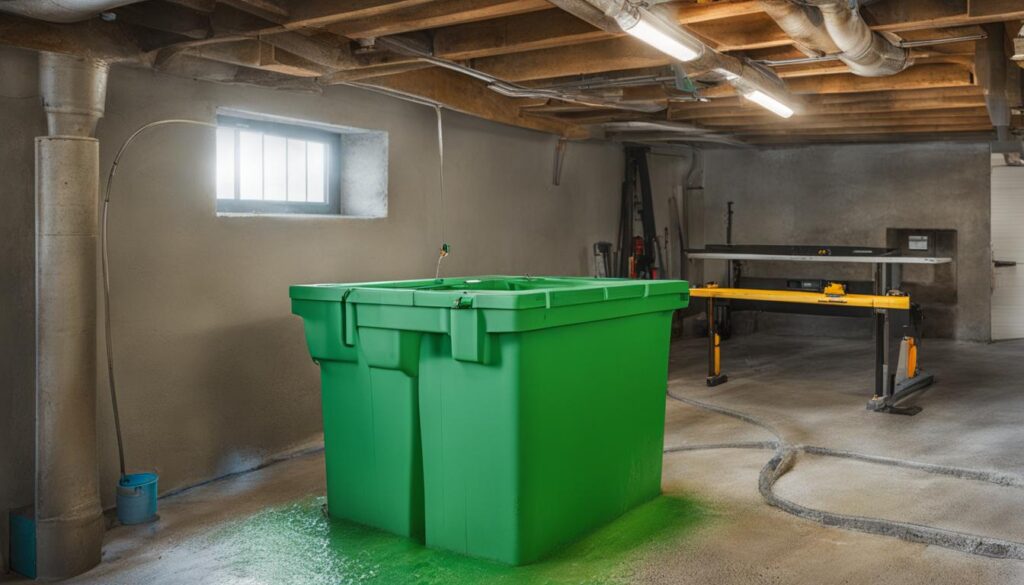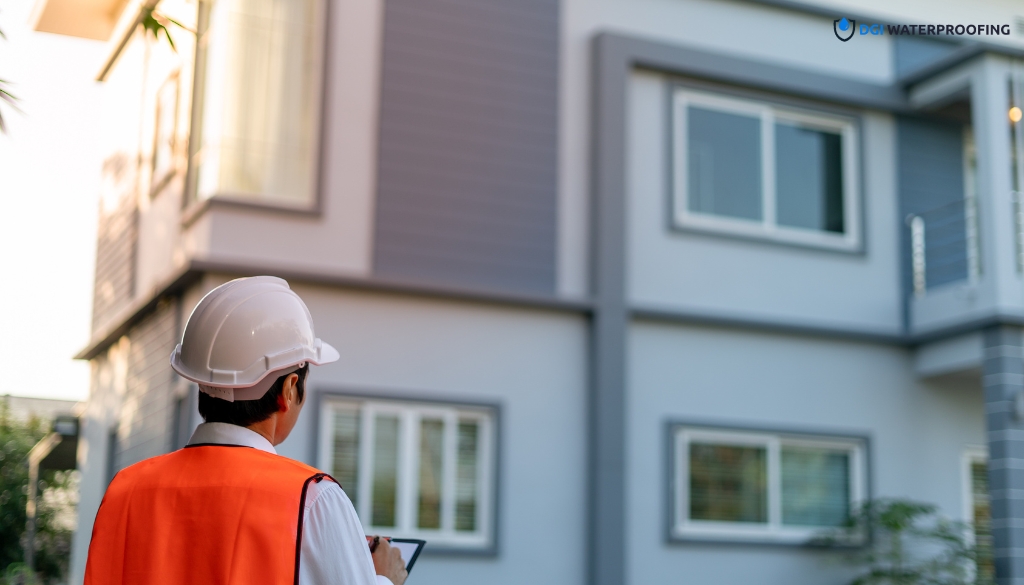Are you a homeowner in Canada? If so, it’s crucial to ensure that your basement is in good condition. A wet basement can lead to various issues, including water damage, mold growth, and foundation problems. Moreover, it can cause your home to fail a home inspection, leading to significant financial losses.
But how can you tell if your wet basement will pass a home inspection? What are the key factors that inspectors look for, and what steps can you take to ensure that your basement is dry and safe?
In this section, we will explore these questions and provide you with essential information about basement inspections, home inspection checklists, and solutions for wet basement problems. By the end of this article, you will be equipped with the knowledge you need to protect your home and ensure that it passes a home inspection.
Importance of Basement Inspection in Canada
A basement inspection is an essential part of owning a home in Canada. With the country’s harsh weather conditions that include heavy rain, snow, and freezing temperatures, it is crucial to ensure that your basement is safe from water damage. A thorough inspection can help identify potential issues and prevent costly repairs in the future.
The Importance of Foundation Inspection
Your home’s foundation is the backbone of the building. Water damage to the foundation can lead to a weakened structure and, in extreme cases, building collapse. Regular inspection can help detect any foundation cracks, settling, or shifting caused by water damage. This helps to ensure that your home is safe and structurally sound.
Signs of Water Damage
There are several signs that indicate potential water damage in your basement. These include:
- Water stains on walls or floors
- Cracks in the foundation walls or floor
- Musty odors or the presence of mold growth
- Efflorescence or mineral deposits on basement walls
- Bowing or leaning foundation walls
If you notice any of these signs, it is essential to address the issue promptly to prevent further damage to your home. Get in touch with water damage restoration experts to fix any such issues!
Common Problems with Wet Basements
A wet basement can lead to a myriad of problems, many of which can compromise the structural integrity of your home. Here are some common issues associated with basement moisture:
| Problem | Signs of water damage |
|---|---|
| Leaking walls | Damp or wet spots on walls; peeling or flaking paint; efflorescence (white, powdery substance on walls) |
| Leaking floors | Puddles of water; damp spots, wet carpet or soggy floor coverings |
| Musty odors | Unpleasant, damp smell; increased allergy or asthma symptoms |
| Mold growth | Visible mold growth; discoloration or staining on walls or floors |
| Foundation damage | Cracks in walls or floors; bowing or leaning walls; settling or shifting foundation |
These problems can worsen over time, making it crucial to address them as soon as they are identified. In addition to posing a health risk from mold and mildew, a wet basement can significantly reduce the value of your home and limit future potential buyers.
Next, we will explore the home inspection checklist for basement waterproofing to ensure your basement is in top condition.
Home Inspection Checklist for Basement Waterproofing
If you’re planning to sell your home, a thorough home inspection is a critical step in the process. Your basement is an essential component of the inspection, and it must be in good condition to pass. Use this checklist to evaluate your basement’s waterproofing to increase the chances of it passing the inspection.
Exterior Waterproofing
Start by examining the exterior of your home for any potential entry points for water. Ensure the roof’s eavestroughs and downspouts direct water away from your home’s foundation. Also, check for any cracks or gaps in the walls. These can allow water to seep inside and cause damage. Seal any openings with appropriate sealants.
Interior Waterproofing
Closely inspect the interior of the basement walls and floors for signs of water damage. Check for any cracks or gaps and repair them promptly. Install a sump pump to remove excess water from the basement. Ensure your basement has proper ventilation and add dehumidifiers if necessary to prevent moisture buildup.
Foundation Inspection
A thorough foundation inspection is essential to identify any potential structural issues that may cause water infiltration. Check for any signs of shifting or settling, such as cracks in the walls or floors. Consult a professional if you detect any structural issues.
Plumbing Inspection
Inspect all plumbing fixtures in the basement for potential leaks and ensure they are functioning correctly. Look for any signs of moisture or mold growth around pipes, and address any issues promptly.
Professional Inspection
Consider hiring a professional basement waterproofing contractor to perform a thorough inspection. They will have specialized tools and knowledge to detect any underlying water issues that may not be visible to the naked eye.

Hiring a Professional for Basement Inspection
If you are experiencing persistent wet basement problems or if you are uncertain about the condition of your basement, it is always advisable to seek the help of a professional.
A qualified basement inspection and waterproofing expert will be able to identify any potential issues and provide you with the necessary recommendations to rectify the situation.
When hiring a professional for basement inspection, it is important to look for someone who has the necessary expertise and experience in dealing with wet basements. Ask for referrals from friends or family members who have had similar issues in the past and check online reviews to find reputable and trustworthy contractors.
During the inspection, the professional will evaluate the condition of your basement and identify any signs of water damage, mold growth, or foundation issues. They will then provide you with a detailed report and recommendations for addressing any existing problems and preventing future ones.
Keep in mind that hiring a professional for basement inspection can ultimately save you time and money in the long run by identifying potential issues before they become major problems.
Benefits of Hiring a Professional for Basement Inspection
Expertise: A professional basement inspection and waterproofing expert has the necessary knowledge and experience to identify potential issues and recommend effective solutions.
Thoroughness: A professional will conduct a comprehensive inspection of your basement, evaluating all areas for signs of water damage, mold growth, and foundation issues.
Prevention: A professional can help you identify and address potential issues before they become major problems, potentially saving you significant time and money down the line.
Overall, hiring a professional for basement inspection can be an essential step in ensuring your basement remains dry and passes a home inspection. By taking the necessary steps to address any existing issues and prevent future ones, you can protect your home and your family from potential water damage and mold growth.
Maintaining a Safe and Dry Basement
After investing time and money in maintaining your basement, it’s important to continue with regular upkeep to ensure its longevity. Below are a few tips and recommendations on maintaining a safe and dry basement in Canada.
Regular Inspection
Inspect your basement at least twice a year for any signs of water damage or moisture. Check for dampness on walls and floors, musty odours, visible water seepage or stains, and any change in the appearance of the walls or floors.
Keep Gutters and Downspouts Clean
Gutters and downspouts should be kept clean and free of debris to prevent water from overflowing and flowing towards your basement. This can be done by cleaning them twice a year, once in the spring and again in the fall.
Proper Grading
To prevent water from seeping into your basement, the ground around your home should be sloped away from the foundation. This will help to divert water away from your home and towards the street or drainage system.
Keep the Basement Dry
Use a dehumidifier to keep the basement dry and free of excess moisture. Ensure that your sump pump is functioning correctly and is regularly serviced to avoid any unexpected breakdowns.
Follow the Basement Inspection Checklist
Regularly following the basement inspection checklist will help you identify and address any potential problems related to your wet basement. It will also ensure that your basement meets the requirements of a home inspection, helping to increase the value of your home.
Basement Waterproofing
Consider getting your basement professionally waterproofed to ensure that it remains dry and free of moisture. This will help to prevent future water damage and maintain a safe and habitable living space for you and your family.
By following these tips, you can ensure that your basement remains dry and passes a home inspection. However, if you are uncertain about the condition of your basement or have persistent water issues, it is advisable to seek the help of a professional basement inspection and waterproofing expert.
